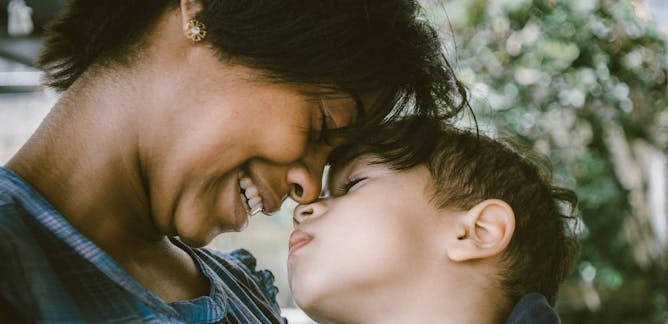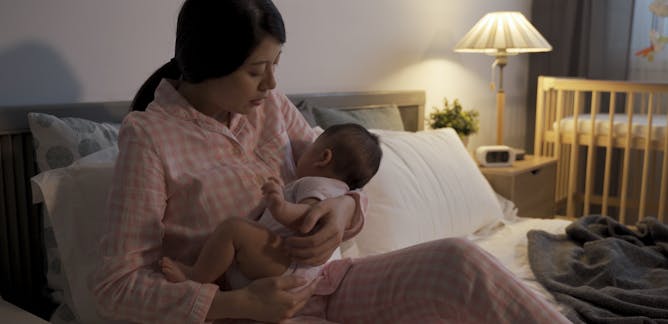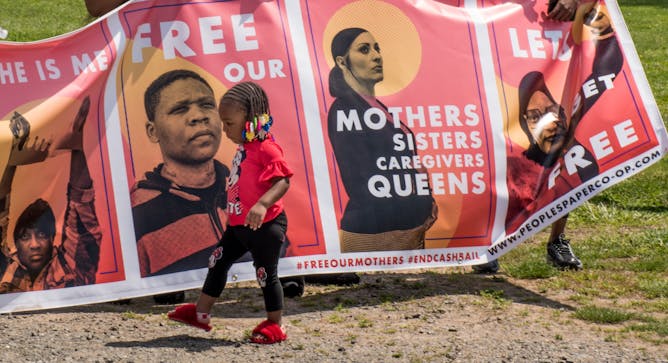|
One of the many great things about my job is when readers take the time to send thoughtful emails about our work. A few times a year, I hear from Usha Srivastava – a regular reader who also happens to be the mother of Vinita Srivastava, our Senior Culture + Society Editor and host of our Don’t Call Me Resilient podcast. Usha sent Vinita and me a note last week about her thoughts on the coronation of King Charles and how her father, who was editor-in-chief of a newspaper in India, told her stories about the end of British rule in India in 1947 that led to the partition of the country on the basis of religion – and the creation of Pakistan as an independent nation. Her father recounted stories about the aftermath of that British decision – one of the largest forced migrations in the 20th century, mass violence against women and the death of a million people. Usha said her views on the British monarchy were based not on just what she had read in publications like The Conversation, but also on “first-hand information from what my parents told me.”
Passing on knowledge and stories from our parents to our own children seems like a perfect way to think about Mother’s Day this weekend. As Vinita said in reply to the note her mom sent us: “Stories are so important to keep informing people what happened, as the history from 75 years ago could start to get lost to new generations if we don't keep telling them about it.”
For your Mother’s Day weekend reading, I’ve assembled a great collection of stories about mothers – some published in the last week, but also a few from our archives. And as a tribute to Usha, the collection includes a podcast by one of her daughters (Vinita) and an article by another (Sarita, who is Dean of the Faculty of Arts and Science at OCAD University and formerly a professor at Queen’s University).
Enjoy the weekend, celebrate your mother (even if she is no longer with you) and we’ll be back in your Inbox on Monday.
|
Weekend Reads: Celebrating Mothers
|

Sarita Srivastava, Queen's University, Ontario
Mother’s Day was originally a call for peace and justice. Some are advocating it be returned to a day of action and reflection.
| |

Christine Ou, University of Victoria; Wendy Hall, University of British Columbia
Supporting mothers’ and infants’ sleep can decrease the stressors of motherhood, improve maternal mood and mental health and promote better infant development.
|

Yue Qian, University of British Columbia; Yang Hu, Lancaster University
Globally, mothers’ educational status has a greater influence over the level of education their children attain today than was the case for people born mid-century.
| |

Beverley Fehr, University of Winnipeg
The mother-daughter bond is considered the strongest human bond. While there is little difference between how fathers and mothers love their children, daughters are more likely to care for their mothers.
|

Dawn Trussell, Brock University; Jennifer Mooradian, Brock University; Shannon Hebblethwaite, Concordia University; Stephanie Paterson, Concordia University
Mothers with young children are consistently identified as having lower levels of physical activity and leisure opportunities, which place their physical and mental health at risk.
| |

Talia Ritondo, L’Université d’Ottawa/University of Ottawa; Dawn Trussell, Brock University
Team sport provides postpartum mothers with opportunities to build community, enhance health and well-being, and counter the often unrealistic and self-sacrificing expectations of motherhood.
|
|
|

Vinita Srivastava, The Conversation; Boké Saisi, The Conversation
For Mother’s Day, we look at the fastest growing prison population in Canada — racialized women, many of whom are mothers. Experts connect the trend to rising poverty and the attempts to cope with it.
|